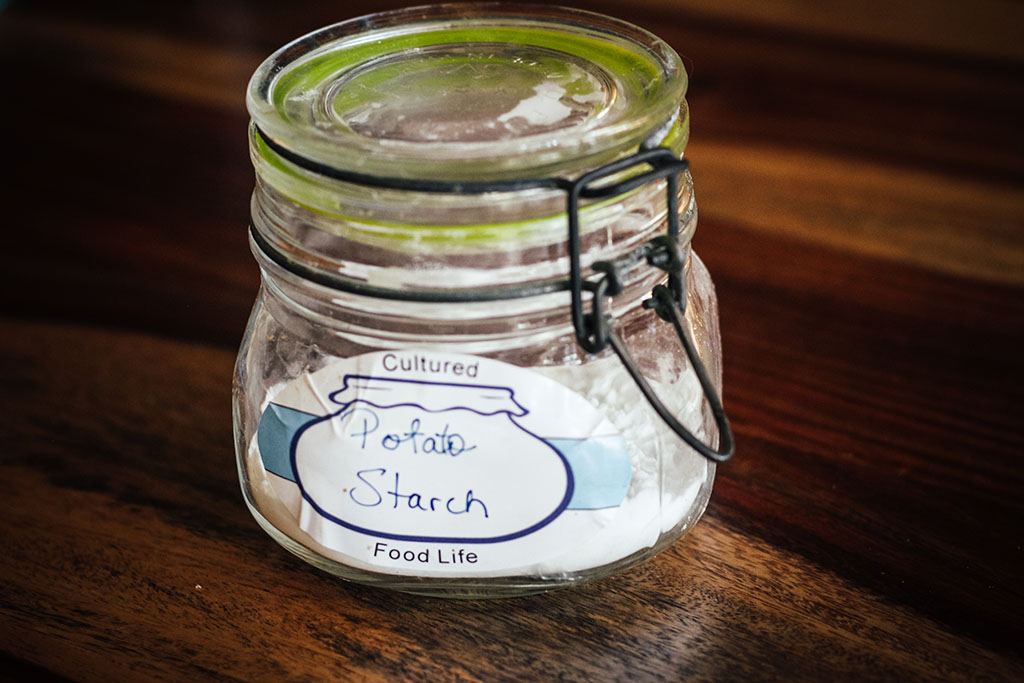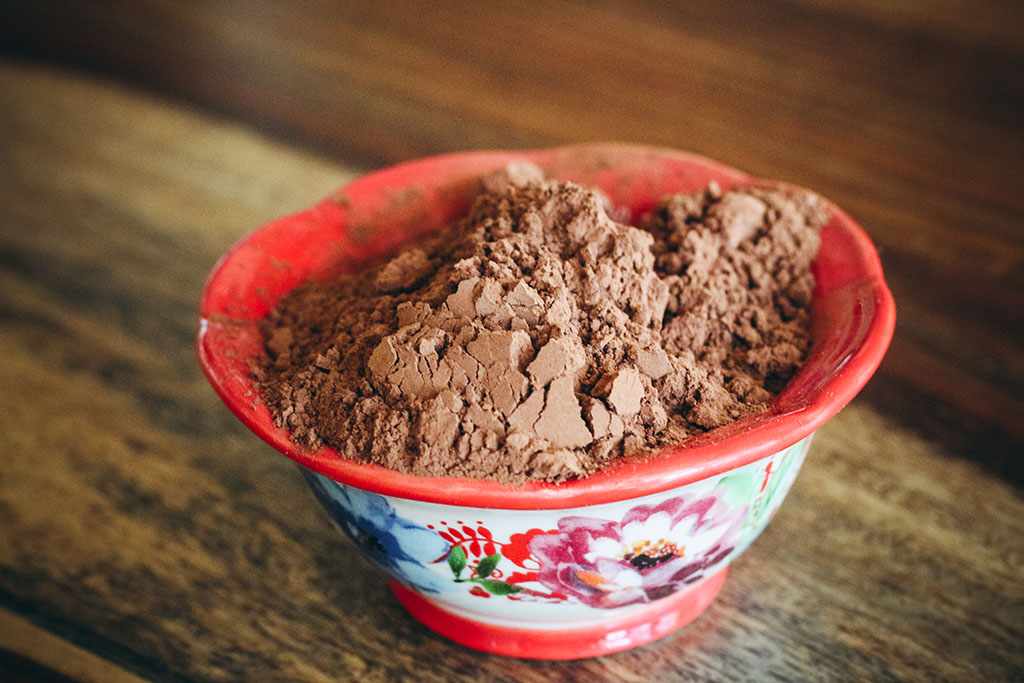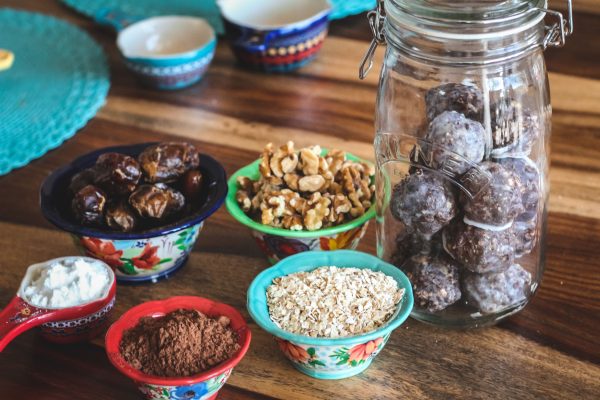
How To Make Kefir Donut Holes
I'm always looking for recipes that give us healthy foods that are fun to eat and also help feed our good bacteria. It's also important that the recipe be easy to make and not time-consuming. These donut holes are gluten-free and have lots of healthy fiber-rich ingredients. Not only do these treats have probiotics from the kefir, but they have lots of prebiotics too. You'll be changing your microbiome with every bite. Learn about all the prebiotics that feed your bacteria below the video!
Watch the video:
The Prebiotics in Kefir Donut Holes

Potato starch is a different type of prebiotic called a resistant starch. A resistant starch is not digested in the stomach, so it reaches the colon intact. It “resists digestion.” What’s interesting about this is that it doesn’t raise your insulin and you don’t really get any calories from it, but your beneficial bacteria digest and ferment it. This changes your gut flora in a spectacular way.1 Once this special resistant starch reaches the stomach and small intestines, one of your beneficial bacteria (specifically Bifidobacteria) latches on to it. Normally they die in the small intestine, but because they're hitching a ride on the starch, they attract and clean up stray harmful bugs and viruses and allow the large intestine to dispose of them.

Walnuts (and most nuts and nut skins) are rich in fiber which feeds the probiotic bacteria that live in the gut. Researchers say that you can reshape the gut microbe community in your gut by adding walnuts to your diet. Not only that, but eating walnuts has been associated with reduced cardiovascular disease risk, slower tumor growth in animals, and improved brain health. 2 Research led by Lauri Byerley, PhD, RD, Research Associate Professor of Physiology at LSU Health New Orleans School of Medicine stated, "We found that walnuts in the diet increased the diversity of bacteria in the gut, and other non-related studies have associated less bacterial diversity with obesity and other diseases like inflammatory bowel disease. Walnuts increased several bacteria, like Lactobacillus, typically associated with probiotics suggesting walnuts may act as a prebiotic."

Oats are a wonderful prebiotic food for your bacteria. Oats contain large amounts of beta-glucan as well as some resistant starch that's also in potato starch. Beta-glucans are sugars that are found in the cell walls of bacteria, fungi, yeasts, algae, lichens, and foods such as oats and barley. Beta-glucan from oats has been linked to healthy gut bacteria, lower LDL cholesterol, better blood sugar control, and reduced cancer risk. 3, 4, 5, 6 You may have heard that having oats every day is heart healthy and for good reason. Your microbes love them too.

Dates are a rich source of dietary fiber and polyphenols - and they're prebiotics too! Recent research on dates and other fiber-rich foods found that dates fermented by the lower gut modify the gut flora and increase beneficial types of bacteria. There was a significant increase in the growth of Bifidobacteria and also increased Bacteroides. Eating whole dates led to the production of Short-chain fatty acids (SCFA). These special fatty acids help keep us healthy through a range of mechanisms related to gut barrier function, glucose homeostasis, immunomodulation, appetite regulation, and obesity.7 Dates are a yummy way to feed those hungry microbes!

Chocolate (or cocoa) is considered a prebiotic that is rich in polyphenols. Cocoa also has an effect on the microbial ecosystem of the gut. Chocolate was shown to play a role in different human diseases and disorders and its role could be through modulations of the intestinal microbial species. Studies done consuming cocoa have shown an increase in the gut microbes Bifidobacteria and Lactobacilli. A significant decrease in Clostridia, which are a class of the Firmicutes, was noted. According to the same study, these changes in the bacterial population were accompanied by positive changes in other biological markers such as triglyceride and C-reactive protein concentration.8 Chocolate is good for you!!
Check Out The Recipe
Kefir Donut Holes
Watch The Video
Ingredients
- ½ cup rolled oats
- ¼ cup potato starch
- 1 cup walnuts - Preferably soaked and cooked
- 1 cup dates
- ¼ cup cocoa or cacao powder
- ⅓ cup Basic Kefir
- 3 tablespoons coconut oil
- 2 tablespoons maple syrup
- ⅛ teaspoon vanilla powder - or ¼ teaspoon vanilla extract
Every ingredient with a link was selected by me to make it easier for you. I may receive a small affiliate commission if you buy something through my links. Thank you! ❤️
Instructions
- Place the oats, potato starch, walnuts, dates, cocoa powder, and kefir in a food processor, and pulse to combine the ingredients into a thick, moist dough.
- Roll the dough into balls and place them on parchment paper in the freezer for 20 minutes.
- Shortly before you are about to remove the dough from the freezer, melt the coconut oil over low heat.
- Once the oil is melted, remove it from the heat and whisk in the syrup and vanilla powder, mixing until it’s a thin creamy consistency.
- Remove donut holes from the freezer and dip them into the glaze, covering each one completely. Put them back in the freezer on parchment paper until the glaze has hardened, about 5 minutes.
Notes
References:
- https://drhyman.com/blog/2016/03/24/the-starch-that-makes-you-lean-and-healthy/
- https://www.sciencedaily.com/releases/2017/07/170728100832.htm
- https://www.ncbi.nlm.nih.gov/pubmed/21631511
- https://www.ncbi.nlm.nih.gov/pubmed/26771637
- https://www.ncbi.nlm.nih.gov/pubmed/26092171
- https://www.ncbi.nlm.nih.gov/pubmed/26511097
- https://www.ncbi.nlm.nih.gov/pmc/articles/PMC4473134/
- https://www.ncbi.nlm.nih.gov/pmc/articles/PMC3566565/
Are you on the list?
Sign up today and I'll send you my free Getting Started Guide!
Each week I'll send you updates, tips, recipes, and more! You might even be a winner of my weekly giveaway! (starter cultures, memberships, and more!)
Come be a part of my cultured food family!




